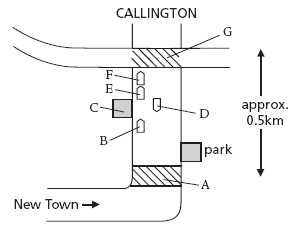Test format – Speaking
11–14 minutes
The speaking section assesses your use of spoken English. Every test is recorded.
- Part 1 - the examiner will ask you general questions about yourself and a range of familiar topics, such as home, family, work, studies and interests. This part lasts between four and five minutes.
- Part 2 - you will be given a card which asks you to talk about a particular topic. You will have one minute to prepare before speaking for up to two minutes. The examiner will then ask one or two questions on the same topic.
- Part 3 - you will be asked further questions about the topic in Part 2. These will give you the opportunity to discuss more abstract ideas and issues. This part of the test lasts between four and five minutes.
IELTS Speaking description
| Paper format | The Speaking test consists of an oral interview between the test takers' and an examiner. All Speaking tests are recorded. |
|---|
| Timing | 11–14 minutes |
|---|
| Task types | There are three parts to the test and each part fulfils a specific function in terms of interaction pattern, task input and test takers output. |
|---|
IELTS Speaking in detail
A detailed look at the paper with links to related resources.
Part 1 – Introduction and interview
| Task type and format | In this part, the examiner introduces him/herself and checks the test takers' identity. They then ask the test takers general questions on some familiar topics such as home, family, work, studies and interests. To ensure consistency, questions are taken from a script. Part 1 lasts for 4–5 minutes. |
|---|
| Task focus | This part of the test focuses on the ability to communicate opinions and information on everyday topics and common experiences or situations by answering a range of questions. |
|---|
| No. of questions | Variable |
|---|
Part 2 – Long turn
| Task type and format | Part 2 is the individual long turn. The examiner gives the test takers a task card which asks the test takers to talk about a particular topic, includes points to cover in their talk and instructs the test takers to explain one aspect of the topic. Test takers are given one minute to prepare their talk, and are given a pencil and paper to make notes. The examiner asks the test takers to talk for 1 to 2 minutes, stops the test takers after 2 minutes, and asks one or two questions on the same topic. Using the points on the task card effectively, and making notes during the preparation time, will help the test takers think of appropriate things to say, structure their talk, and keep talking for 2 minutes. Part 2 lasts 3–4 minutes, including the preparation time. |
|---|
| Task focus | This part of the test focuses on the ability to speak at length on a given topic (without further prompts from the examiner), using appropriate language and organising ideas coherently. It is likely that the test takers will need to draw on their own experience to complete the long turn. |
|---|
| No. of questions | Variable |
|---|
Part 3 – Discussion
| Task type and format | In Part 3, the examiner and the test takers discuss issues related to the topic in Part 2 in a more general and abstract way and, where appropriate, in greater depth. Part 3 lasts 4–5 minutes. |
|---|
| Task focus | This part of the test focuses on the ability to express and justify opinions and to analyse, discuss and speculate about issues. |
|---|
| No. of questions | Variable |
|---|
IELTS Speaking - How it's marked
Marking and assessment
Speaking performances are assessed by certificated IELTS examiners. All IELTS examiners hold relevant teaching qualifications and are recruited as examiners by the test centres and approved by the British Council or IDP: IELTS Australia.
Scores are reported in whole and half bands. Detailed performance descriptors have been developed which describe spoken performance at the nine IELTS bands.
Fluency and coherence
This refers to the ability to talk with normal levels of continuity, rate and effort and to link ideas and language together to form coherent, connected speech. The key indicators of fluency are speech rate and speech continuity. The key indicators of coherence are logical sequencing of sentences, clear marking of stages in a discussion, narration or argument, and the use of cohesive devices (e.g. connectors, pronouns and conjunctions) within and between sentences.
Lexical resource
This criterion refers to the range of vocabulary used and the precision with which meanings and attitudes can be expressed. The key indicators are the variety of words used, the adequacy and appropriacy of the words used and the ability to circumlocute (get round a vocabulary gap by using other words) with or without noticeable hesitation.
Grammatical range and accuracy
This refers to the range and the accurate and appropriate use of the test takers' grammatical resource. The key indicators of grammatical range are the length and complexity of the spoken sentences, the appropriate use of subordinate clauses, and the range of sentence structures, especially to move elements around for information focus. The key indicators of grammatical accuracy are the number of grammatical errors in a given amount of speech and the communicative effect of error.
Pronunciation
This criterion refers to the ability to produce comprehensible speech to fulfil the Speaking test requirements. The key indicators will be the amount of strain caused to the listener, the amount of the speech which is unintelligible and the noticeability of L1 influence.





